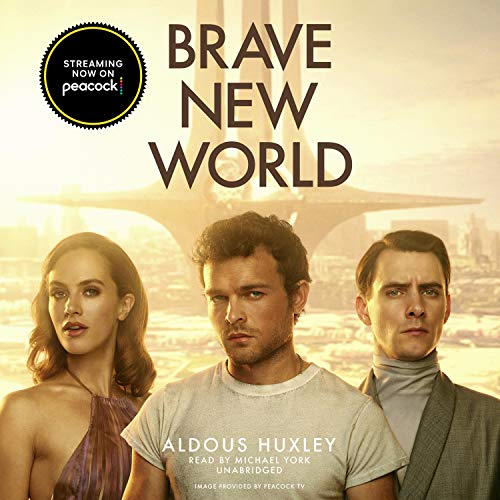Brave New World is a groundbreaking work of dystopian fiction that has become a staple of 20th-century literature. Written by Aldous Huxley and first published in 1932, the novel presents a disturbing vision of the future that continues to resonate with readers today. Set in a world where people are genetically engineered and conditioned to conform to a rigid social hierarchy, the story explores themes of individuality, freedom, and the cost of happiness.The novel is set in London in the year 2540, a time when the world has been transformed by scientific and technological advancements. In this society, people are no longer born through natural means, but are instead grown in laboratories and conditioned from birth to fit into their predetermined roles in society.
There are five castes in this world, ranging from the highly intelligent and physically fit Alphas to the mentally and physically stunted Epsilons. Everyone is conditioned from birth to accept their place in society and to value stability and happiness above all else.The novel’s protagonist is Bernard Marx, an Alpha who is considered a misfit in society due to his smaller-than-average stature and his tendency to question the status quo. Bernard’s discontent leads him to seek out forbidden experiences and to develop a relationship with a woman named Lenina Crowne. Lenina is a typical member of society, conditioned to value pleasure above all else and to never question the society’s norms and values.As the novel progresses, Bernard and Lenina travel to a reservation where people still live in a more natural state. Here, they meet a man named John, who was born naturally and has never been conditioned like the rest of society. John is fascinated by the technology and advancements of the modern world, but also repelled by its lack of humanity and spirituality. Bernard sees in John an opportunity to challenge the status quo and to expose the flaws in the society’s conditioning.As the novel reaches its climax, Bernard and John’s rebellion is brutally crushed by the ruling powers of society. In the end, John takes his own life in a fit of despair, and Bernard is forced to conform to society’s norms once again.

One of the most striking aspects of Brave New World is its portrayal of a society that has achieved stability and happiness at the cost of individuality and freedom. Huxley’s vision of a world where people are bred and conditioned to fit into predetermined roles is a chilling reminder of the dangers of totalitarianism and the value of personal autonomy.Another important theme of the novel is the cost of happiness. In the world of Brave New World, people are kept happy through a combination of conditioning, pleasure, and drugs. However, this happiness comes at the cost of meaningful human relationships and the ability to experience real emotions. Huxley suggests that true happiness cannot be achieved through superficial means, but requires a deeper connection to oneself and to others.
Finally, Brave New World is a warning against the dangers of a world that values technological progress above all else. Huxley’s vision of a world where science has replaced spirituality and humanity is a cautionary tale about the importance of balancing technological advancement with ethical and moral considerations.In conclusion, Brave New World is a timeless work of literature that continues to resonate with readers today. Its vision of a future society where individuality and freedom are sacrificed for stability and happiness is a chilling reminder of the dangers of totalitarianism. At the same time, the novel’s exploration of the cost of happiness and the dangers of unchecked technological progress make it a thought-provoking and prescient work that remains relevant to this day.
